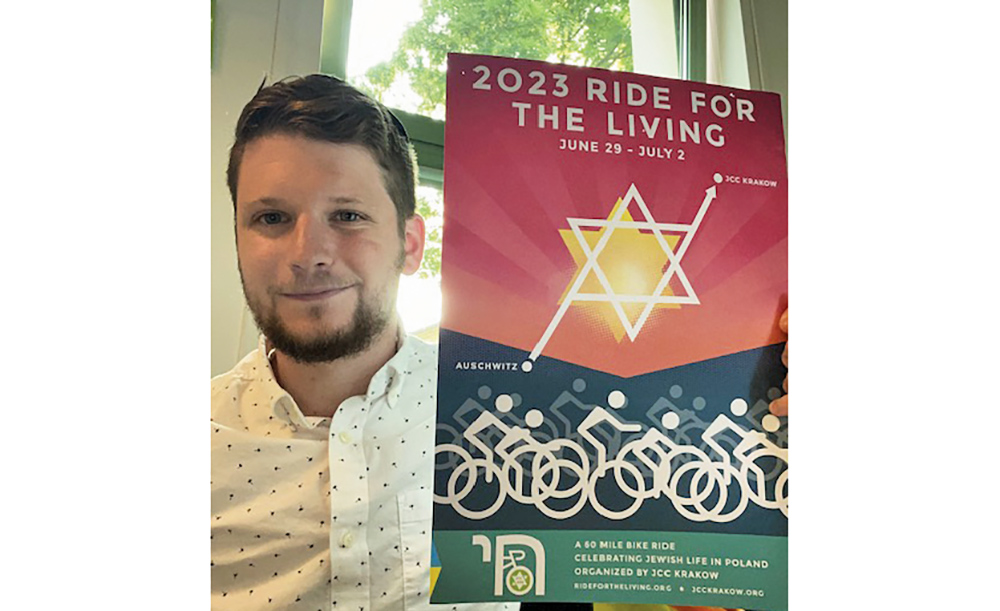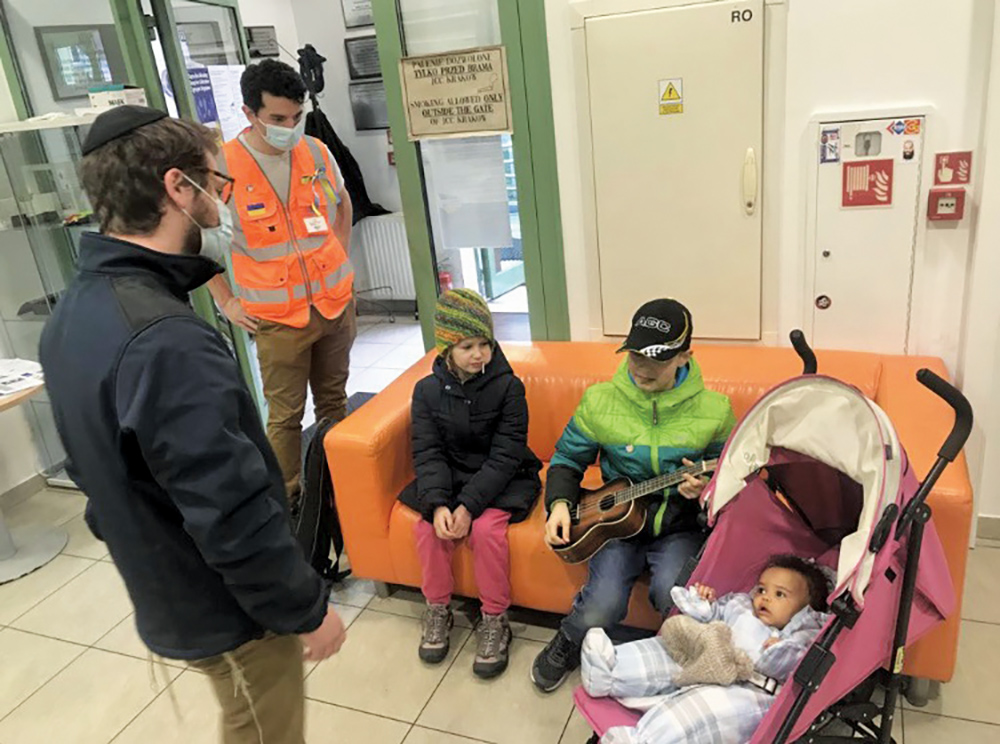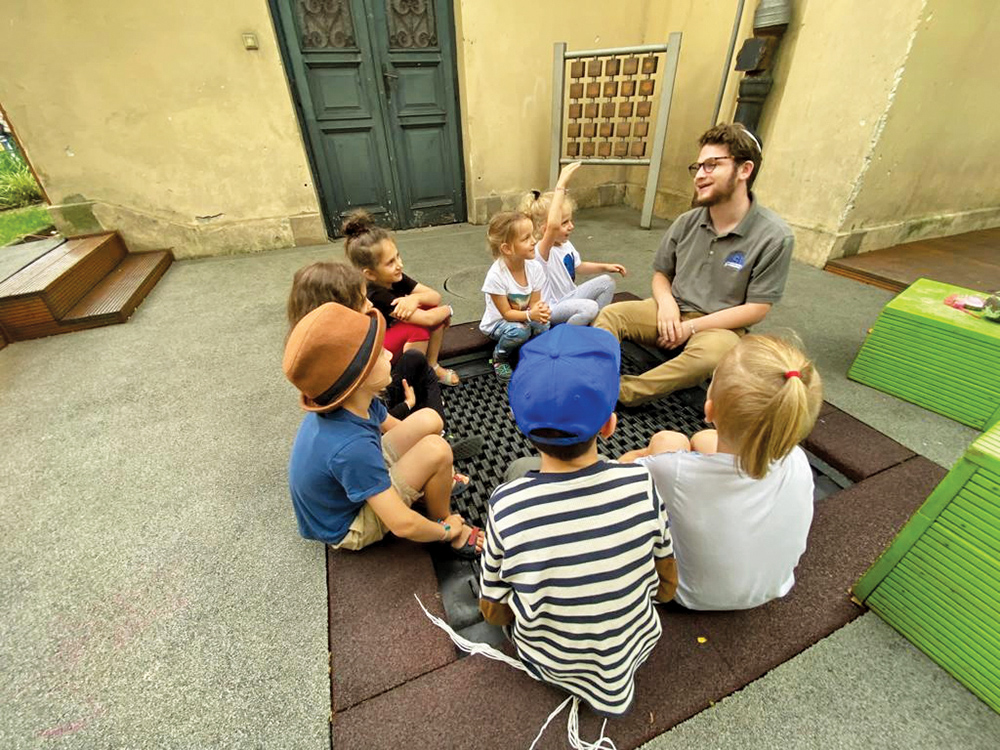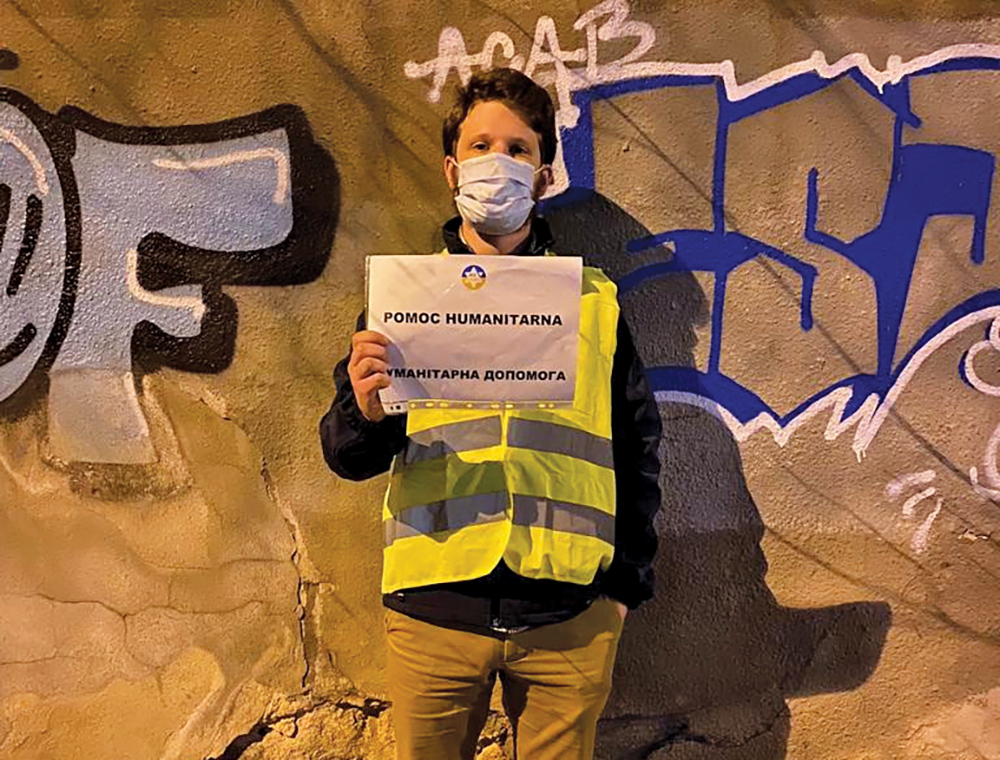By Cynthia Mindell

Marcel Zielinski was only 10 when he was liberated from the Auschwitz-Birkenau concentration camp and set out on foot for Krakow in search of his family. At the end of the 60-mile route, he was eventually reunited with his mother.
Sixty-eight years later, in 2013, Zielinski took part in a bike ride that retraced his journey. It was organized by the Jewish Community Center in Krakow on the
occasion of the nonprofit’s fifth anniversary as a way to showcase its mission: supporting the local community of Holocaust survivors and revitalizing Jewish life in Poland. Every year since, the event has grown to include thousands of in-person and virtual cyclists who hail from all over the world. Some participants choose instead to walk the five kilometers from the Krakow-Płaszów concentration camp to the JCC.
Beginning at the gates of Auschwitz, the Ride for the Living passes through the Polish towns of Przeciszów, Podolsz, Morysina, Smolice, Miejsce, Spytkowice, Lipowa, Łączany, Chrząstowice, Pozowice, Facimiech, Ochodzi, Kopanka, Skawina, culminating in Krakow where riders enter the gates of the JCC campus. This year, the cyclists will set out very early on Friday, June 30, arriving at the JCC in time for a celebratory communal Shabbat dinner together with ambassadors, government officials and community members.
Since Zielinski jumped onto a bike seat in 2013, the annual roster of cyclists has included Bernard Offen, a Jewish Krakow native who survived five concentration camps; Greg LeMond, three-time Tour de France winner; Dan Craven, two-time Olympian and multiple Namibian cycling champion; Yoav Bear, two-time Israeli cycling champion; Joachim Frank, the 2017 Nobel Prize winner in chemistry; and a handful of diplomats from the U.S. and Israel.

Among this year’s Ride for the Living cyclists is Shabbos Kestenbaum of Riverdale, New York, a senior at Harvard spending the summer in Krakow to study Polish and volunteer at the JCC. This is not his first time in Poland; Kestenbaum has visited some 13 times since he turned 18. In early 2022, when Russia invaded Ukraine, he returned to help at JCC Krakow, a destination for thousands of refugees pouring in from across the border—an unforeseen demand on the JCC that strained staff and budget.
“I had previously known of the work of JCC Krakow, but I wasn’t incredibly involved. I took time off work, bought a one-way ticket to Poland, and just showed up,” he said. “I said, ‘Hopefully, I’ll be back soon,’ and ever since, I’ve been coming to Krakow as much as I can.”
Kestenbaum has witnessed a lot of change on subsequent return trips. “When I first got to the JCC, it was controlled chaos—but more so on the chaos side,” he recalled. “The JCC is not a humanitarian aid organization, but it became one overnight and what that meant is they were getting truckloads of donations—medicine, food, clothing—and not necessarily the professional knowledge or vocabulary in terms of how to deal with such an outpouring of support. So when I came, there was a distribution center, but it wasn’t necessarily organized in the way it is today. It wasn’t necessarily staffed with international volunteers as it is today. It wasn’t really screening the people coming in—are they refugees?—whereas, nowadays, it very much is, so we know that our limited resources are being targeted and used directly and only for those who need them.”
Today, funded by private donors, NGOs, governments, foundations and philanthropic organizations, the JCC serves as a daily distribution center, one of the only ones still operating in the area. It also runs a nearby daycare center for refugee children and a residential center in a converted 18th-century palace outside the city. In addition to its usual offerings of classes, lectures, community events, and support of Holocaust survivors, the JCC devotes much of its operating budget and mission to the hundreds of thousands of Ukrainian refugees now living in the region.

“The fact that we, the Jewish community, can be leaders in helping those who are seeking refuge, when in this very spot 80 years ago, we ourselves were refugees and know what it was like when the world stayed silent—it is incredibly powerful and incredibly meaningful to be able to do this type of work,” Kestenbaum said.
Kestenbaum is the descendant of Polish Jews who immigrated to the U.S. before WWII and helped get hundreds of Jews out of Europe to safety. His father started Kestenbaum & Company, the first auction house in America specializing in rare Judaica manuscripts, and the family home was filled with 16th- and 17th-century Jewish books and an appreciation of Jewish history and culture.
So it’s no surprise that Shabbos Kestenbaum would go on to study the evolution of Hasidic thought in light of the Holocaust, or to return to his ancestral homeland to acquire a deeper understanding of the subject matter. He found these visits very gratifying.
“You’re taught that Poland is a place of death and destruction and that is certainly true: three million Polish Jews were killed here; very few survived,” he said. “At the same time, it is also true that there’s a lot of life here. There is a revitalization and resurgence of Jewish life in Krakow, in Warsaw, in Lodz, and to me, that is incredibly powerful. In addition to the work I do with Ukrainian refugees, the fact that I wear my kippah and my tzitzit every day and I go put on my tefillin and daven is really, really powerful. One of the reasons that’s attracting me to Poland after all these years is the fact that I make a difference, I matter, and there is significance to what I’m doing.”

Kestenbaum hopes to raise $2,008 on the Ride for the Living, corresponding to the year of the JCC’s inauguration by His Royal Highness, King Charles III of the United Kingdom.
To learn more and to help Shabbos reach his fundraising goal visit jcckrakow.kindful.com/rftl2023/shabbos-kestenbaum1.
Cynthia Mindell is a staff writer at The Jewish Link.









